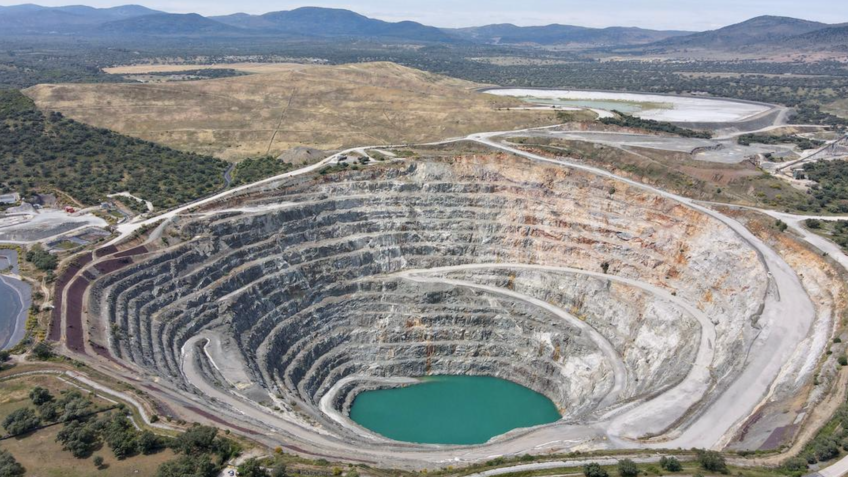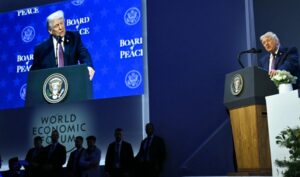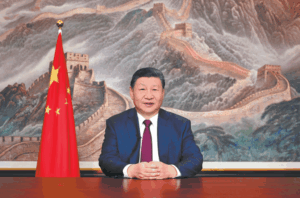
According to the President of Serbia, Miloš Vučević, the country could have the largest ore extraction mine in Europe
In Europe, the demand for electric cars is increasing and the trend is for the sector to grow. According to a 2023 report from the IEA (International Energy Agency), the number of electric vehicles on the planet could grow 10 times by 2030. With this, the European Union is trying to find alternatives for lithium purchased from China. Here is the full report (PDF – 6mB, in English).
The importance of lithium is seen in the global market as individuals increasingly use EVs (electric vehicles). The ore is capable of storing a lot of energy in a small space, being crucial for the development of lithium-ion batteries, used in electric cars.
According to statements by the President of Serbia, Aleksandar Vučić, in an interview with Financial Times published on June 16, 2024, the country could have the largest lithium mine in Europe after the Rio Tinto Group presented a new proposal that meets the requirements imposed by the government for the extraction of the ore in Jadar, in the west of the territory Serbian.
According to Vučić, if all necessary facilities are delivered, lithium production in the country could begin in 2028, with the mine in Jadar being designed to supply up to 58,000 tons of lithium per year. For comparison purposes, all countries in the world produced 130,000 tons of lithium in 2022.
Furthermore, it is estimated that there is an abundance of the metal on the planet. However, its extraction is complex and has major environmental impacts in the regions where the mines are located, which is why the government had halted the development of the project in 2022.
At the time, the Serbian Academy of Sciences and Arts carried out a study showing that the implementation of the Jadar Project would alter the local landscape, deteriorate biodiversity on land and in water, expel local residents and put an end to agricultural activities in the region.
The exposure of the environmental and social damage that would be caused encouraged the population to join protests by environmental movements. The demonstrations were stopped only after the Prime Minister, Ana Brnabić, announced the stoppage of the plan.
If the maximum capacity of lithium is produced at the Jadar mine, Serbia could occupy 2nd position in the ranking of the largest lithium producing countries in the world, further impacting the supply of the ore on the international market and becoming an alternative for automotive companies that intend to increase their production of electric cars on the continent.
Vito Villar, international trade and sustainability consultant at BMJ Consultoria, highlighted to Poder360 the importance of long-term lithium production in Europe and the European Union’s attempt to reduce the commercial flow of Chinese electric cars.
“Facilitating exploration in regional partner countries, such as Portugal and Serbia, is very important for the European Union’s long-term plan to nationalize its production and reduce dependence on Chinese cars. It is important to have this very broad perspective to understand how these pieces are moving in this direction”he declared.
He also said that, despite Serbia not being a member of the European Union, the country would play a more commercially relevant role for members of the European bloc due to the community’s plan for critical metals, but highlighted the extractions already existing in North America. South.
“Serbia would position itself as an important producer for the European Union, precisely because it is close to the bloc, but it is not the only one. The European Union explores other markets, including Ursula von der Leyen in the last 2 meetings she had with President Lula, the topic of lithium was discussed a few times. The European Union looks at Latin America with very careful eyes in this regard as well”he stated.
Lithium in South America
At the same time that Serbia is expected to become one of the largest lithium producers in the world, South American countries, such as Chile and Argentina, are already able to stand out in the global lithium market. Both countries, together with Bolivia, make up the Lithium Triangle, one of the areas with the highest incidence of the ore, with 60% of the world’s reserves, according to data from the US Geological Survey.

However, Bolivians do not benefit in the same way as Argentines and Chileans, even though they are the largest holders of brine-type lithium in the world, with 21 million tons in their territory, according to the US Geological Survey.
Due to the excess magnesium, Bolivian lithium is considered less pure, which makes its extraction more expensive and economically unviable. Furthermore, the closest port for shipping the ore is in Chile, in Iquique, 535 km from Uyuni, where Bolivia’s lithium is located.
Villar also explains that the “recent political disorganization, coup d’état and elections that were not very well resolved”together with the lack of resources from the Bolivian State, make extraction in the country difficult.
Such obstacles, combined with the high level of interference from Bolivia’s state-owned lithium company, Bolivian Lithium Depositsalienate potential investors and make it difficult for the Andean country to stand out in the international lithium market, unlike Chile.
Chile, in the 1980s, benefited from the attraction of foreign capital to finance the development of projects to transform deposits into mines and, as a result, began to stand out in the international market for the sector.
However, under the government of President Gabriel Boric, Chile distanced itself from the previous extractive market policy and announced, in 2023, the Strategic Lithium Exploration Plan, with the objective of creating a partnership between the public and private sector in the extraction of ore and maximize national ore production.
Thus, Chile, which does not face the same problems as Bolivia, still manages to remain among the largest lithium producers in the world.
In this way, the Serbian government already has practical demonstrations of countries that have managed to use their deposits to benefit their economies, and countries that are still trying to align their lithium extraction policies, and it is up to the Vučević administration to implement policies that overcome possible economic obstacles, political and environmental issues that may arise in the development of this sector in Serbia, which could become crucial for the European Union due to ore production.
Source: https://www.poder360.com.br/internacional/uniao-europeia-tenta-encontrar-alternativas-para-o-litio-chines/

